The Rough Rider Reconquista
The left’s complete capture of the outdoor industry has led to the desecration of our natural resources. It’s time for the right to ride in and reclaim its place at the table.
Culture War arenas such as academia, corporate hiring, video games, and science fiction franchises get most of the attention, but the Culture War extends everywhere. The author of today’s guest essay,
, gives us an overview of the state of play in the battlespace about which he is the most passionate: national parks, hiking, and outdoorsmanship.This is something which is close to my own heart. I grew up in a deep, rural area, with very conservative parents. They raised me to treasure the natural world; to be kind to animals; to never, ever litter; to appreciate the quiet peace of forest, lake, and hill. The notion that conservation is a left-liberal coded political position has always struck me as a bizarre category error. If anything, it’s a profoundly conservative stance … but really, it’s just a human stance. And of course, as Cole shows us, the sleeper agents of cultural Marxism that have been infiltrating the institutions mediating our interaction with wild spaces don’t actually care about the natural world. As always, their agenda is purely political.
- JC
The Culture War has many casualties, though one notably absent from public discourse is the ruthless capture and occupation of virtually every outdoor space.
You’d be forgiven for thinking that most nature lovers tend to congregate on the left side of the aisle. Outwardly, the community appears to be in its crunchy era: social feeds supply us with a steady stream of content from granola girls and dirtbag dudes, “roughing it” in outrageously expensive Mercedes van conversions, clocking in remotely for nebulous, high-paying jobs, and preaching the importance of climate activism and equity.
Most outdoor companies share the same positions, dutifully plastering their profiles with pride regalia (see: North Face ushering in the summer with a mustached drag queen) and reminding you whenever possible that just by breathing, you’re killing the planet. Any view even remotely right of center is quashed. Patagonia, for example, launched a permanent boycott of Jackson Hole Ski Resort for the crime of hosting a Republican event. And almost every ski resort and gear supplier makes you tithe to a group of climate change evangelicals called “Protect Our Winters.”
Despite the emphasis on sustainability and inclusion, the state of our trails, parks, and open spaces has precipitously decayed. Paths are lined with discarded bags of pet waste, crumpled cans of low-calorie hard seltzer litter the summits, and the soft whisper of rustling pines is drowned out by Bluetooth speakers.
Make no mistake, the shift in outdoor culture has not been an organic one. What we’re witnessing are the symptoms of complete institutional capture of an entire industry, by forces that care for neither the environment, nor humanity.
Civilizing the Mountain Man
The archetypal outdoorsman was always rugged, in-shape, and individualistic; all characteristics which allowed them to accomplish much in the way of conservation.
These are the original Rough Riders:
This group was led by William “Buffalo Bill” Cody, a decorated military hero and hunter who wound up inspiring the world with the spirit of adventure through his travelling performances.
Teddy Roosevelt would later borrow the Rough Rider mantle, gallop into political prominence, and take great action to preserve the west. Americans probably have him to thank for our abundance of beautiful national parks – and the fact that we don’t all live like pod people in some godless concrete jungle, sprawling from sea to shining sea.
Rough Rider types pose several serious problems for the ruling class, chiefly that cowboys don’t make good cattle. Their self reliance keeps them from being dependent, their real-world gratification renders them unimpressed by consumerist slop, and their active lifestyle often prevents them from becoming frequent customers of the pharmaceutical industry.
Bringing the outdoor community into the Longhouse would require replacing the Roosevelt/Cody brand of conservation, with abject anti-humanism. I wrote about the incursion from this faction in the web edition of Quandary Magazine, “Smiths vs. Teddys:”
The anti-humanists are not interested in beautifying our natural parks and cleaning up the trash. They believe we are trash.
They faced an uphill battle, but made up for it with patience and persistence.
The legacy of Cody and Roosevelt stretched for decades in both cultural and institutional spaces. The Boy Scouts of America (BSA) moulded generations of its members into naturalists in the image of these great men. The organization, brought stateside by Robert Baden-Powell in 1911, grew explosively for the next half-century. It further extended its reach by shaping its members into capable leaders, who could in turn perpetuate this vision of conservation.
The entertainment sphere, meanwhile, seemed to model its subject matter after Cody’s successful stint as the world’s greatest entertainer. Westerns dominated the silver screen, telling stories that captured the American spirit.
Recognizing that communists would probably try to fill movies with their communist propaganda, the film industry blacklisted them. This successfully kept their cancerous brain rot out of the mainstream, until a lawsuit from John Henry Faulk forced an end to the practice in 1962.
A younger, more libertarian version of myself may have cheered this ruling as a victory for free speech. Unfortunately, history would wind up vindicating the perpetrators of Red-Scare McCarthyism.
Kicking Sand in the Potato Salad
Thus began a gradual, almost imperceptible tapping at the sash of the Overton Window that spanned the rest of the 20th century.
I grew up watching what I consider the last few fantastic kids shows. Chief among them was a cartoon called Rocket Power, created by a family of surfers, about a group of kids who play extreme sports and learn important life lessons.
I vividly recall an episode called “The Spot,” in which the gang visits a neighboring town’s beach, behaves poorly, and draws local ire. It led to this viral, widely memed exchange:
I can’t help but think of it every time I see some jackass making a mess of the trail… but I digress. Values-based kids shows, particularly ones focused on the outdoors, were an endangered species by the turn of the millennium.
What replaced them was a slew of sitcoms portraying kids and teenagers in increasingly adult situations. Many of these products aired on Nickelodeon, under direction of a mogul named Dan Schneider. The New York Times called him the Norman Lear of children’s television.
Others might call him a child-grooming hobgoblin (allegedly.)
Quiet on Set: The Dark Side of Kids’ TV painted Schneider as the facilitator of a hostile work environment where child stars were abused, and scenes sexualizing minors were pushed. Schneider has taken legal action against the makers of the docuseries, and denies allegations regarding the sexualization of children in his work.
Much has been written and said about the kind of messaging that’s overtaken modern movies and shows in the last ten years. But much of that analysis misses the role of this transitional period in entertainment. Shows that embodied the spirit of youthful and often fantastical adventure were replaced by content depicting kids as quasi-adults, paving the way for racial and sexual politics that would eventually be shoved down our collective throats.
Bringing the Boy Scouts to Heel
This entertainment ecosystem, increasingly infested with culture warriors, also started chipping away at the longstanding prestige of organizations like the BSA. Depicting someone as a scout became a kind of character development shorthand, signalling them as uncool.
The targeting wasn’t incidental; the existence of the pre-centennial BSA was a serious problem for the ruling class. Their organization’s commitment to values-based conservation served as living proof that going along with society’s adoption of critical theory was completely optional. If the BSA was free to refuse the push, others might start getting ideas.
Lawfare was inevitable.
In 2000, the United States Supreme Court heard Boy Scouts of America v. Dale. In one corner you had James Dale, an avowed gay rights activist, co-president of the Rutgers University Lesbian/Gay Alliance, and outspoken advocate for gay teens having gay role models. In the other, you had the BSA, who didn’t want someone like Dale around its young, impressionable members.
The BSA won, but there was blood in the water. Culture warriors circled back around, this time employing social pressure. They tried to make their demand sound as reasonable as possible: drop the policy against openly gay members. Just one teeny tiny rule. What’s the point anyway? It’s outdated. No real sense keeping it, right?
Smart members of the program clocked this Trojan Horse from miles away. Alas, the organization’s leadership did not. Possessing both the physique and fortitude of rice pudding, they caved, capitulated, and acquiesced some more — agreeing to an ever-escalating series of demands that hollowed out the once-proud group into an empty vessel for The Current Thing(TM).
The Boy Scouts of America is now all-inclusive! Not just to gay scouts and leaders, but girls too. In a show of solidarity with Black Lives Matter after the riots of 2020, a mandatory DEI merit badge has replaced camping as a requirement to attain the once coveted rank of Eagle Scout.
Let’s not forget the Scout Masters now left to deal with teens using the program’s overnight trips as cover for hookups.
Oh, and they went bankrupt.
The organization agreed to a 2.5 billion dollar settlement over tens of thousands of sex abuse cases perpetuated by adult men, against underage boys.
Rather than bolster ranks, adopting DEI cost the organization more than 1 million members.
The BSA – sorry, Scouting America1 – didn’t publish annual membership reports from 2020 to 2022, I imagine out of embarrassment. During this time, the Mormons, who used Scouting as a youth program for its boys, took their 400,000 members, and their money, and left.
The Corporate Press's War on Wild
Scouting was one of, if not the last bastion of quasi-unstructured outdoor activities. While the death of free-range childhood seems to be commonly understood, there is some debate about the precise cause.
Whatever your opinion on the matter, regime journalists shoulder enormous responsibility for eroding societal trust and inspiring mass paranoia through sensational reporting. Former latchkey kids became hysterical helicopter parents, petrified of letting their children out of sight.
Playing outside became a heavily supervised affair, usually relegated to fenced-in backyards with locking gates.
Kids have been robbed of the experiences that could lead them to develop an organic appreciation for outdoor recreation, and groomed into a hypersexualized version of early adulthood. All the while, the institutions which once taught conservation and virtue now serve as apparatuses of critical theory.
From here, the anti-humanists were free to use climate change as a kind of Original Sin, of which all outdoorsmen were guilty. “You and your hobbies are destroying the Earth. Give us your money, do what we say; you will atone.” Using the same shame and bullying tactics employed in many instances of institutional capture, this faction embedded itself at the top of most outdoor-focused companies and organizations.
The resulting hegemony makes it almost impossible to consume outdoor content, shop for outdoor products, or purchase outdoor experiences without making in-kind donations to left-leaning causes. The message — true or not — is deafeningly clear: the default world view for any nature-lover is liberal.
The Dawn of the Peak Bagger
It was from this monolith that peak bagging culture spread like Kudzu, choking the rest of the community as it went. Whereas many hikers and campers may adventure out of a love for nature or solitude, a peak bagger is someone who does it to complete arbitrary laundry lists of mountains and destinations, usually sharing photographic proof on social media.
Much like the culture warriors they grew from, peak baggers relate to the outdoors as a prop or tool in achieving self-centered ambitions – largely related to their digital selves.
While these people are “outdoorsy” in appearance, they are in fact chronically online, mired in the infinite opium den of bottomless social feeds. Adventures are merely commodities they trade for the cheap rush that accompanies a like or comment.
This makes faux outdoorsmxn a convenient activist force for the reigning conquerors of the space: easily wound up and set upon any issue, provided it can be dressed up as nature related.
One such issue is the ongoing “overcrowding crisis”, which bears striking resemblance to the overpopulation lie. I extensively dissect this issue in my documentary, The Alpine Amusement Park:
The gist is that the usurpers are trying to paint an illegal parking problem as an environmental one. A problem, by the way, that one Sheriff solved in their jurisdiction overnight with these signs:
The trouble with this solution is that it’s both easy and effective, thus resolving everything without the need for draconian government intervention. Proponents of “more people = more bad” would rather use this false dilemma to lobby for needlessly anti-recreation policies — and have already done so successfully.
Meanwhile the real problem, which is entirely cultural, continues to fester. We don’t have too many hikers, campers, and adventurers, we’ve simply stopped socially policing obnoxious, slovenly behavior. Notice that this problem is not a global one: other countries do not tolerate it, and neither should we.
Holdouts of the old-guard outdoorsmen have recognized this issue, at least on some level, and have resorted to gatekeeping and secrecy to preserve what spaces they can. Unfortunately, this is not a long-term solution. If anything, it feeds into the anti-human argument that access to the outdoors does need to be restricted.
The Reconquista
Fixing this problem will require a herculean effort.
But fear not, for the outdoor community is ripe for liberation.
You see: to make way for its message of identity politics, climate guilt, and anti-humanism, the regime had to displace actual adventure culture. Many downtrodden subjects of this regime harbor seething hatred for the forces that destroyed what they loved: converting conquered mountain towns into extractionary fiefdoms, and morphing beloved media outlets into clickbait advertainment.
The majority of this cohort, brow-beaten beyond belief, will never revolt on its own. Culture warriors maintain this control via a kind of prisoner’s dilemma, perpetuating the false perception that their worldview is normal and shaming dissenters into silence.
Those dissenters are waiting for someone to make the first move.
Fortunately, that first phase of this liberation is a simple matter of sitting on our wallets. As conventional wisdom dictates, our overlords are largely incompetent and uncreative, which is why the things they co-opt tend to crumble.
The outdoor industry is no exception. Widely popular gear retailer REI for example — which has made its chief concerns DEI and Climate change — has been haemorrhaging money for years. Meanwhile, omni-outdoor media company Outside Inc. appears to be engaged in magazine genocide, buying and summarily shit-canning the most loved publications in the game so that it can focus on turning the entire planet into a pay-to-play NFT scavenger hunt that raises money for DEI causes. No, seriously:
“...our marketplace will govern a net 5% royalty from secondary and ongoing sales to our non-profit partners. This will help fund the organizations doing the hard work in sustainability and DEI initiatives designed to get everyone outside.” –Outerverse Whitepapers
Our fellow members of the outdoor community are quite literally begging for someone to offer them an alternative. This is where we must roll up our sleeves and get to work.
I’m doing my part to help fill this void with the creation of Quandary Magazine, an independently published – yes published – print outlet, designed to preserve the spirit of outdoor adventure. I’d be thrilled if you’d join me for some honest-to-goodness outdoor journalism, free from all the bullshit plaguing the industry.
This is a piece of the puzzle. We also need organizations that impart conservation values and teach outdoor skills. Scouts are beyond saving, but they performed a tentpole function for the community. Alternatives such as “Trail Life” have started sprouting, but doubtless need help dealing with growing pains.
There is also enormous potential in churches. After all, Mormons made up the backbone of the BSA. My own congregation has a group that organizes regular outdoor expeditions, and leads family camping trips. If your church doesn’t do something like this, I’d encourage you to speak up, even volunteer your time if possible.
For the secular reader: find a way to get involved in the local scene surrounding your favorite outdoor hobby. Mountain bikers, for example, usually have volunteer trail crews. Participate, and speak your mind. Remember: part of the reason we’re in this mess is because the left successfully branded its worldview as the mandatory default. Don’t cede this ground again by keeping your mouth shut.
It took the regime the better part of a century to pry the reins of the outdoor community from the hands of men like Roosevelt and Cody. They have since fallen asleep in the saddle, complacent in their belief that their serfs will accept such continued subjugation.
They are wrong.
Join me in offering the people a meaningful alternative.
Join me in restoring the culture of this once great community.
I’ll be escaping to the pristine air of the mountains in a few days, getting away from the noise and distractions of the city, and I’m really looking forward to it. This piece made me yearn for the wilderness even more. I hope you enjoyed this as much as I did. and if you did, please
with whatever social media accounts you have. And don’t forget to subscribe to Quandary Magazine!
A million thank yous to all of my patrons. My gratitude towards each of you is boundless. The small cadre of supporters makes it possible for me to write for a much larger audience, and without you none of this would be possible.
They changed their name in May of 2024, after 114 of being the Boy Scouts. Since they’re no long the Boy Scouts, this is at least honest.





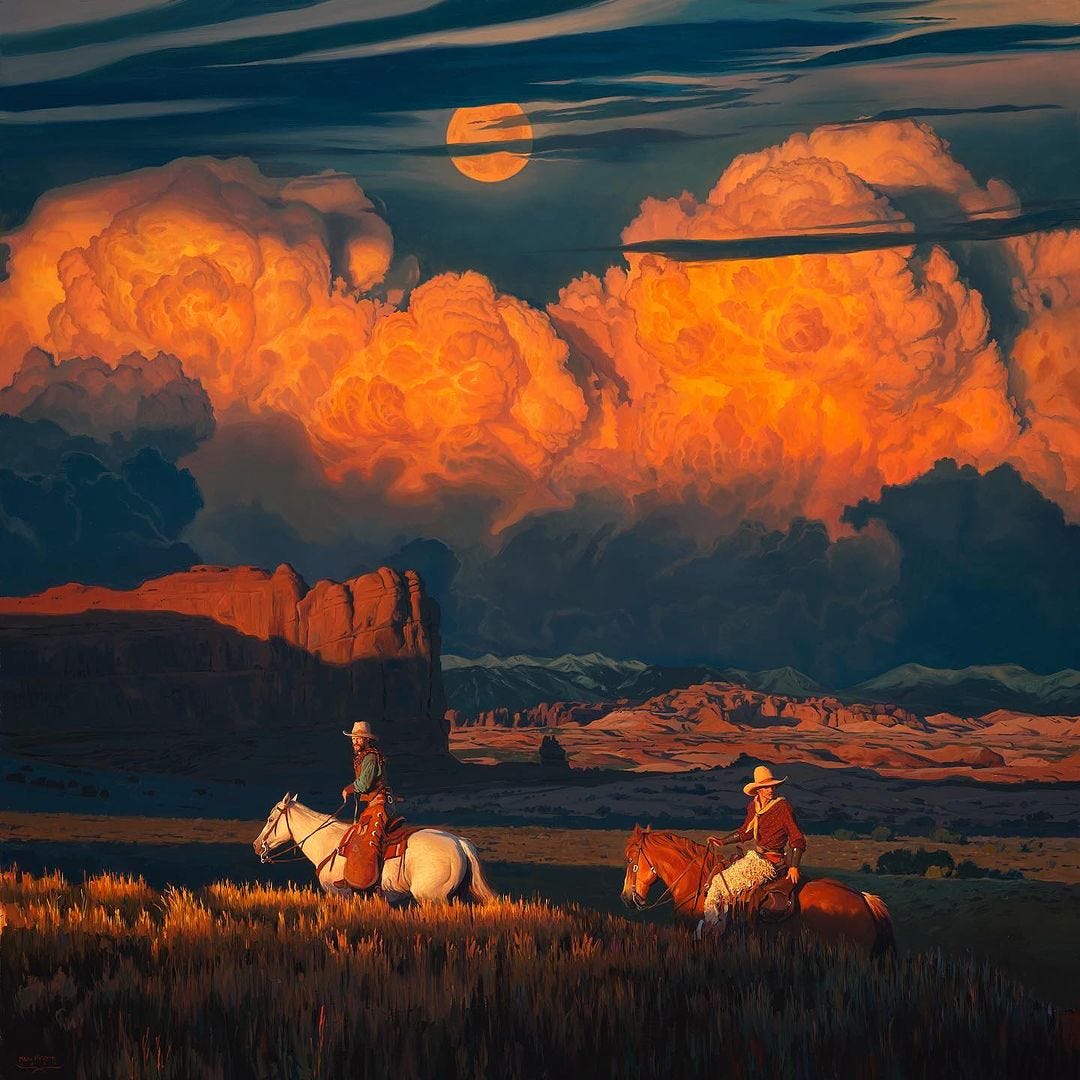
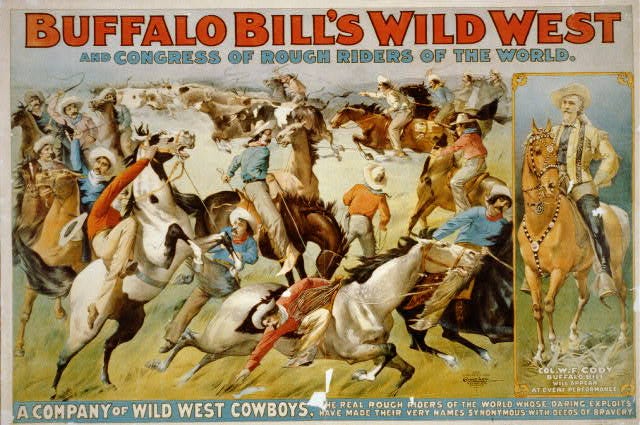

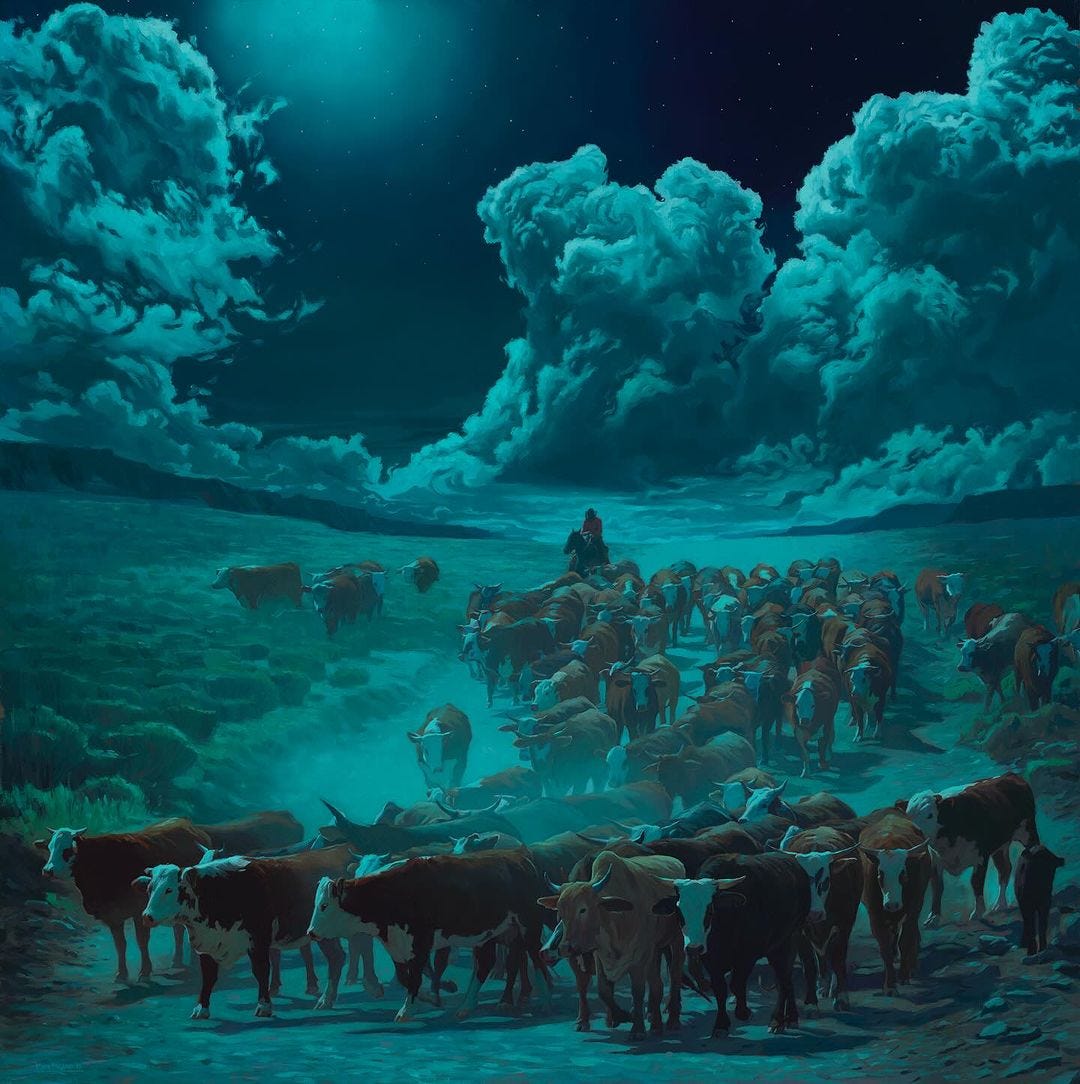
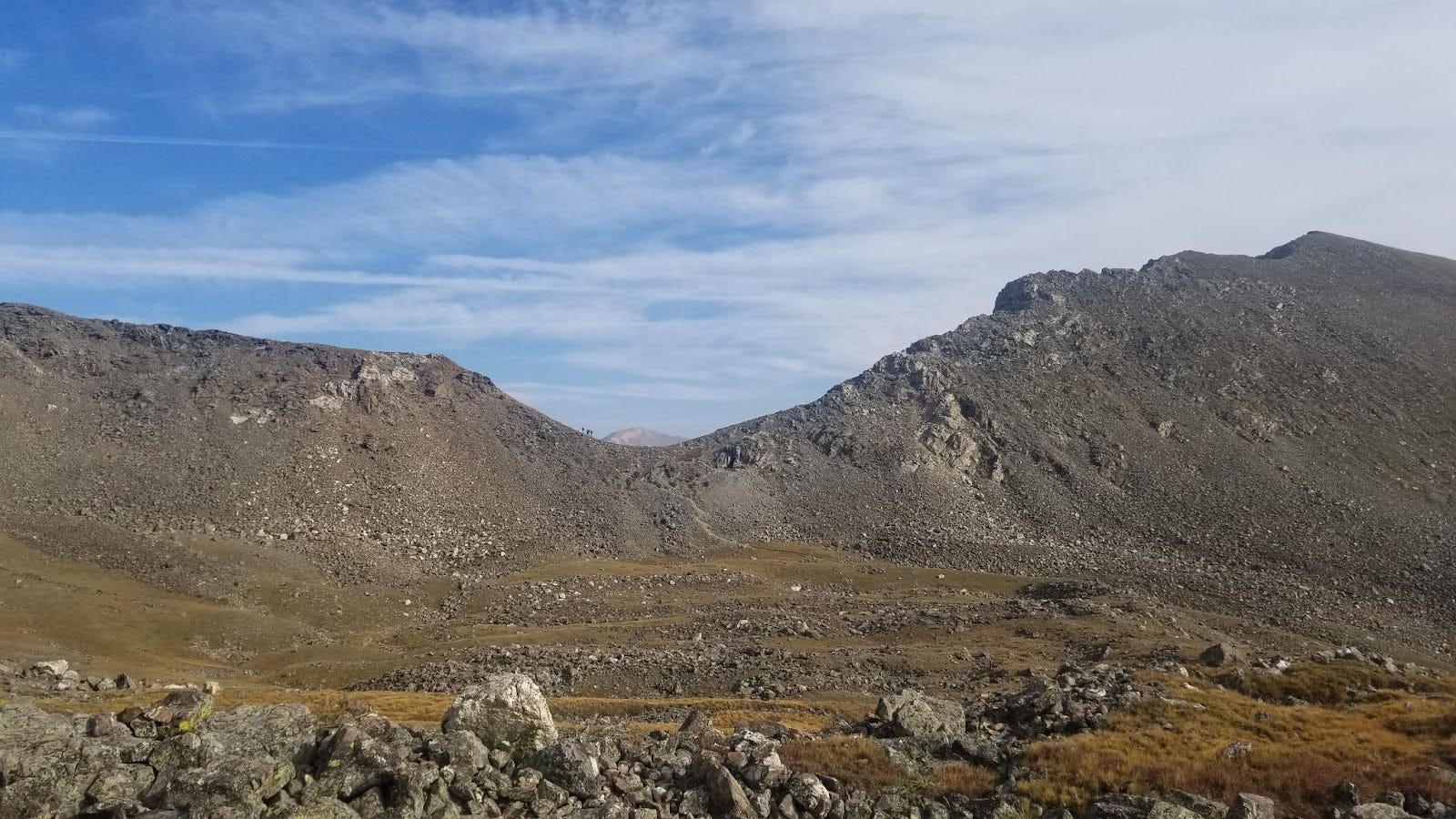
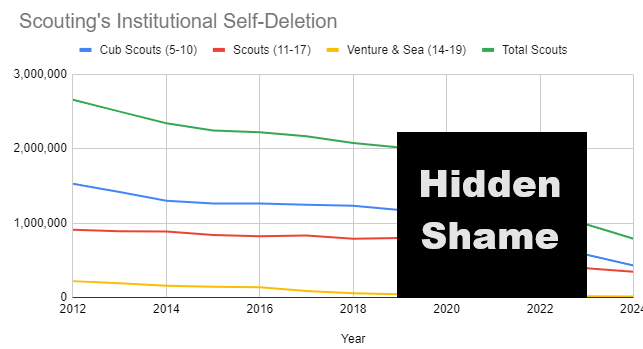
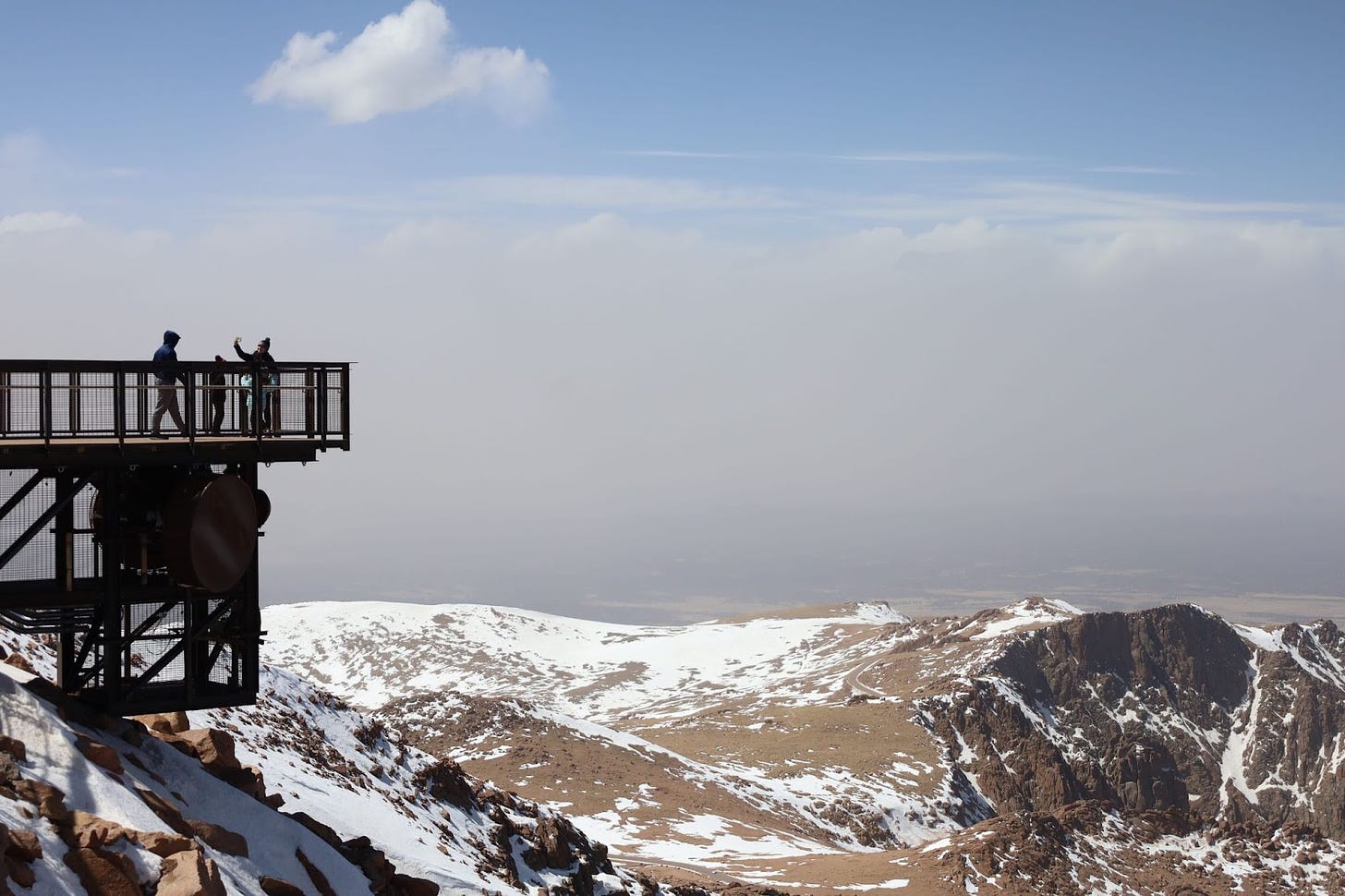

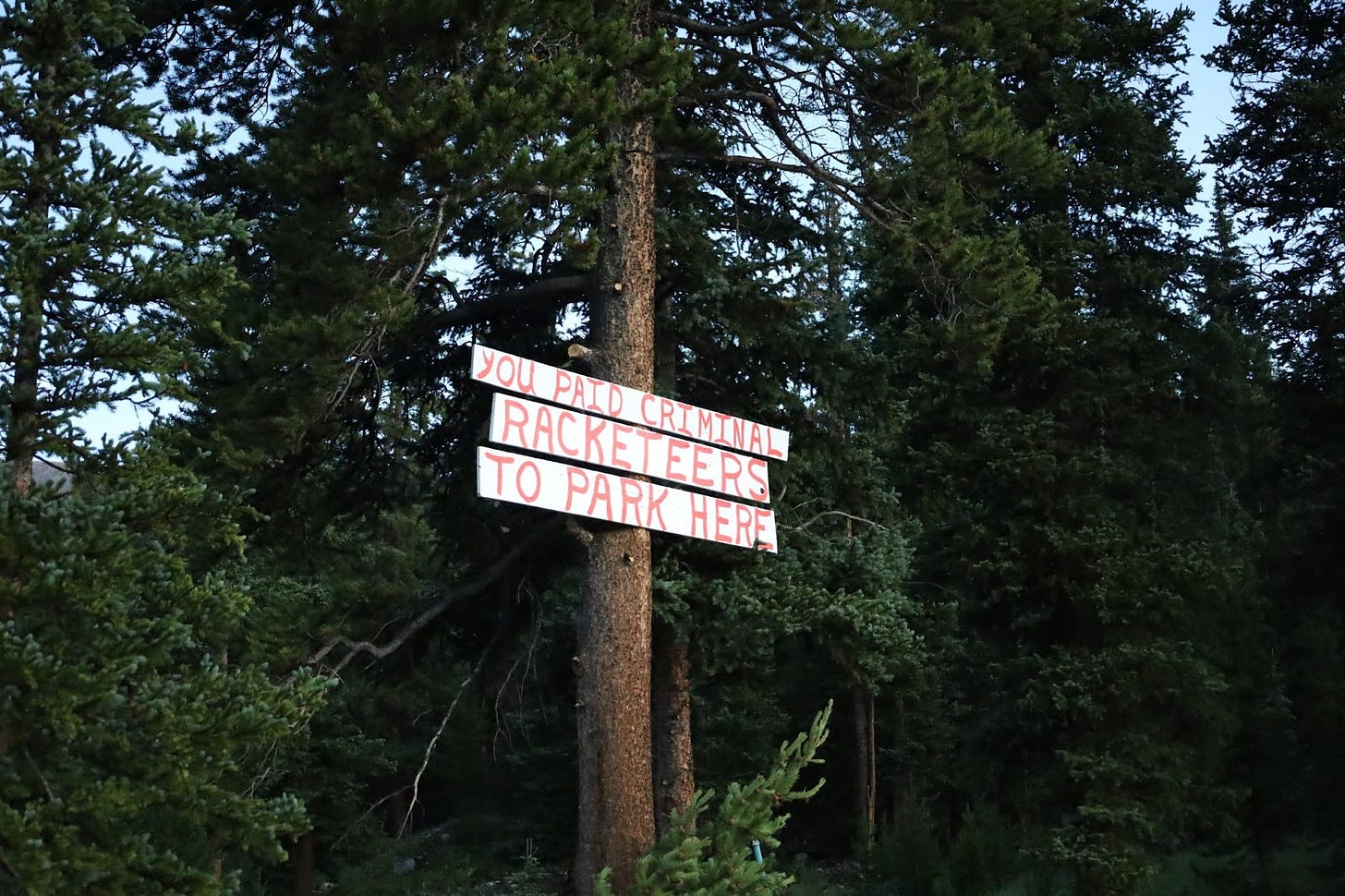
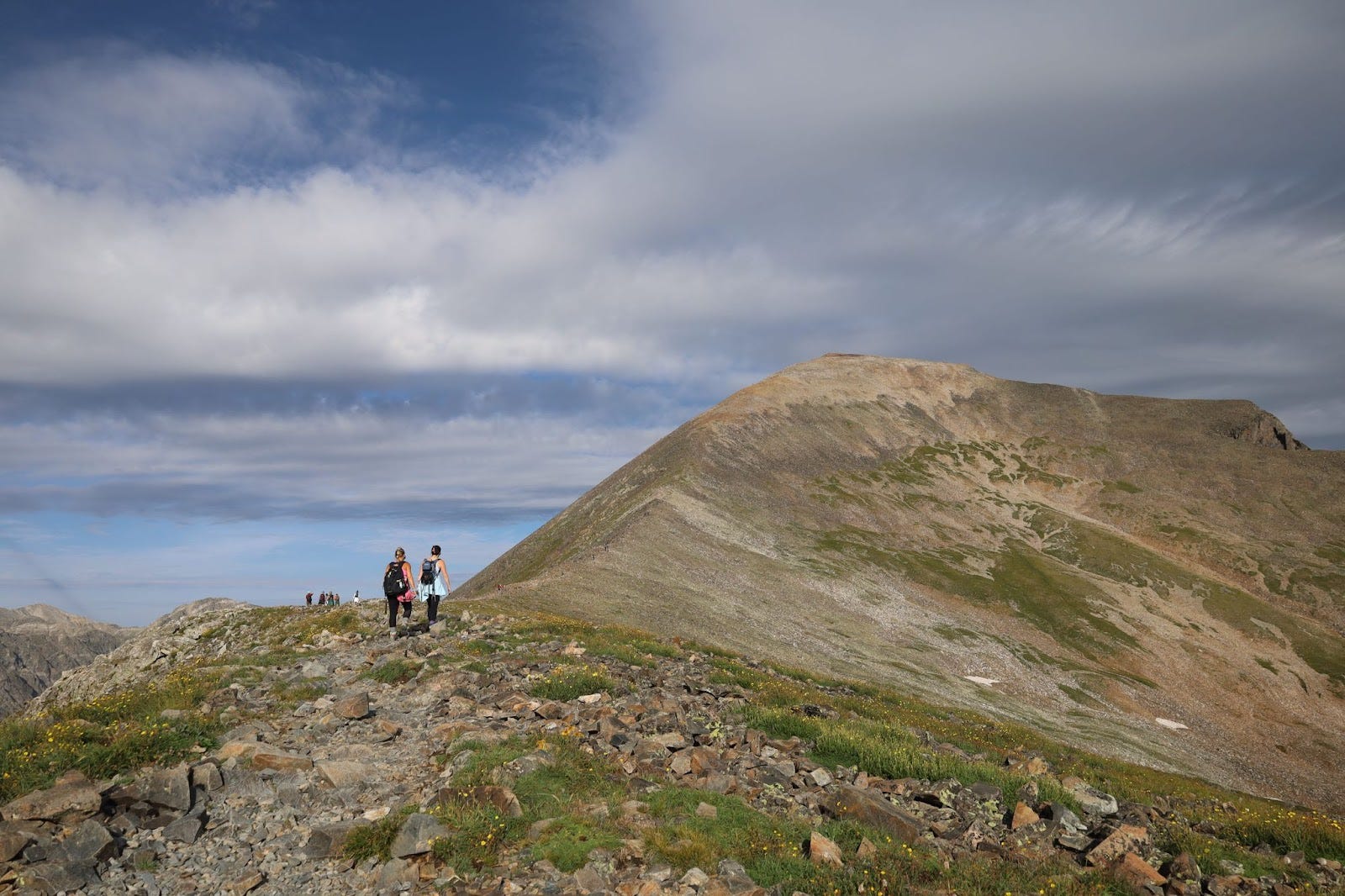

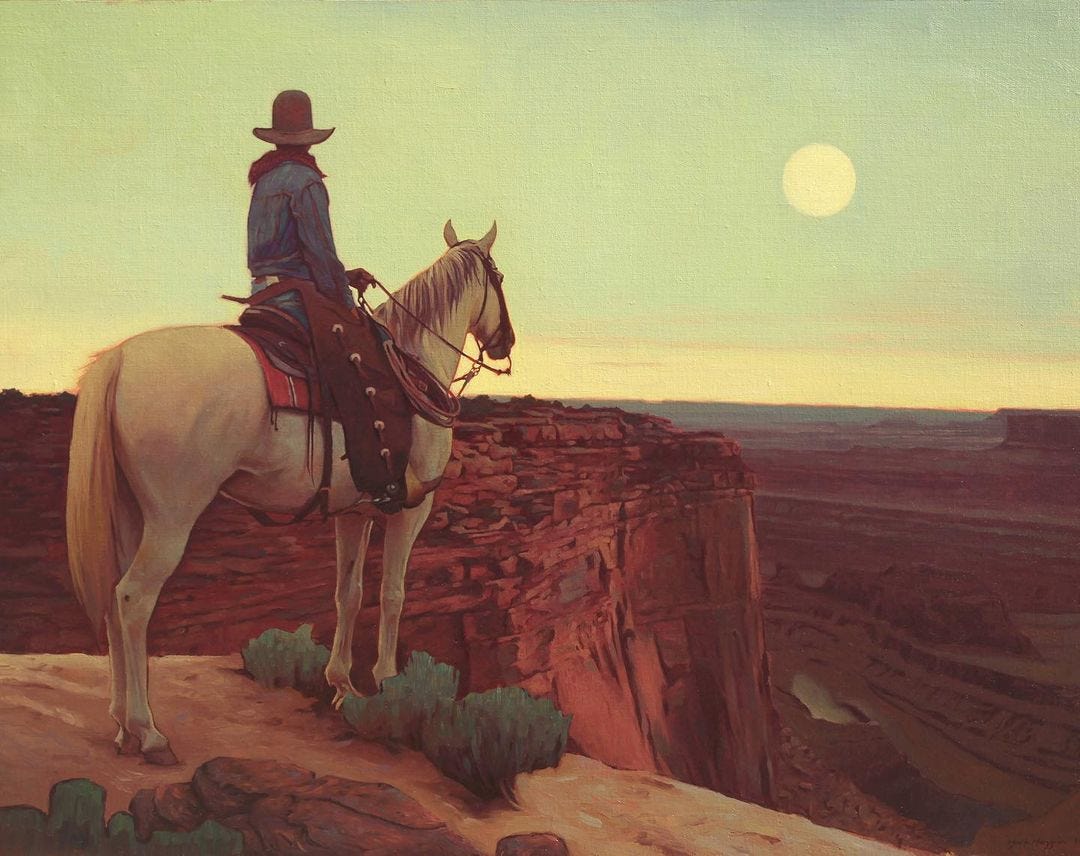

…like the idea that constant stimuli is necessary to maintain a state of lobotomized acceptance of absurdist alternate reality, and if the mind was allowed to truly reflect, it would wake up to a painful and frightening reality?
I can not understand why folks go into the wild and take loud speakers with them.
Being alone in the woods must be very painful to these kind of people.
Why not just stay at home?